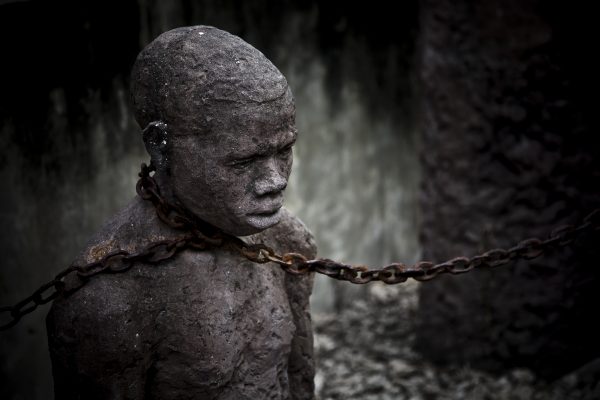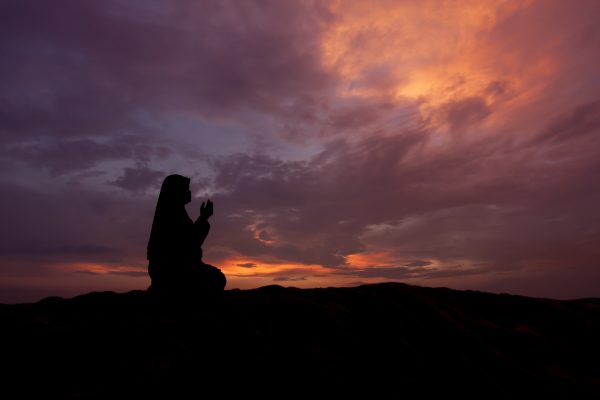“There is not al-Islam as we know it today separate from Black people, which is also why I am very uncomfortable with the language of “Black Islam”… we must resist using lazy tropes in looking at Black people within early Islamic history as well as what it means to be a “Black Muslim” today.”
“There is not al-Islam as we know it today separate from Black people, which is also why I am very uncomfortable with the language of “Black Islam”… we must resist using lazy tropes in looking at Black people within early Islamic history as well as what it means to be a “Black Muslim” today.”
As there have been heightened discussions about Blackness among Muslims in the West in relation to protests that began in America in the wake of the savage police murder of George Floyd, an African American father, there have also been numerous online discussions recently about “Black Muslims” and “Black Islam.”
Though I have co-authored two books relating to “Black Muslims,” I currently use such terminology within a specific discourse in which I am able to qualify what is meant. I do not subscribe to a broad universal construct of “Black Muslims” in this contemporary time, nor do I think that it is appropriate to say that there is such a thing as “Black Islam”. I will provide some historical context as to why I assert that we need to be more clear when we talk about Black people who are Muslims and their different histories.
We understand that Prophets and true saints who came before Prophet Muhammad (prayers and peace be upon him and his family) were Muslims, and we also know that some of them would be viewed today as phenotypically Black. For instance, Musa (peace be upon him) was described as having “brown skin and kinky hair” [1]. Luqman the Wise (peace be upon him) was Abyssinian thus also Black [2].
However, if we are viewing Muslims within the framework of those who follow the shari’ah of Allah’s last prophet, Blacks who were Abyssinians, Nubians and Arabs were among the first generation of believers. What it meant to be Black in Arabia approximately 1,400 years ago was not based upon the current European idea of racial constructions that dominates how Blackness is viewed in the West today. Moreover, even what it means to be Black in the West is not the same as what it means to be Black among many Africans who currently reside in the African continent.
From this perspective, there is no such thing as early Islamic history outside of Black history, nor is there Islam outside of African religion. From the earliest persons to accept al-Islam such as Abdullah bin Ma’sud (may Allah be pleased with him) who in contemporary times would fit the description of a Black Arab to Africans accepting al-Islam in Abyssinia prior to people accepting in Yemen and Oman, Black folks and Africa have played a vital role in Islamic civilization from the beginning.
Thusly it is a ridiculous postulate advanced by many (Black) orientalists that our religion is inherently anti-Black. There is not al-Islam as we know it today separate from Black people, which is also why I am very uncomfortable with the language of “Black Islam”.
As Black people later became synonymous with those having skin tones ranging from brown to black possessed by persons whose lineage comes from sub-Saharan Africa, such people did not view themselves primarily from the lenses of Blackness within the predominant history of Islamic civilization.
Moreover, al-Islam came to different segments of Black people through different means. How al-Islam first came to Abyssinia is very distinct from how the deen arrived in Zanzibar. Likewise, how al-Islam arrived in coastal East Africa has little similarity to how the deen came to West Africa in which latter produced great indigenous Islamic civilizations void of Arab control such as the Malian empire and the Sokoto caliphate. Also, it must be kept in mind that Muslims from sub-Saharan Africa have historically viewed themselves in relation to their tribal affiliations, not in terms of nation-state nor Black Pan-African identity as modern Pan-Africanism, which was a reaction to European colonialism and is only little older than a century.
The terminology of “Black Muslims” to discuss specific Muslims in America is problematic from my perspective. The original usage of the term comes from African American intellectual C. Eric Lincoln who wrote the book The Black Muslims in America which was published in 1961 – this term had a specific meaning in relation to members of the Nation of Islam (NOI), not African American Muslims within orthodoxy, much less Muslim immigrants from places such as Sudan.
To this day, many (Black) Americans from my parent’s generation say Black Muslims mean NOI members. Hence this is one reason why I shy away from identifying as a Black Muslim. Another reason why I am uncomfortable with this language is because it projects a false sense of shared experience among distinct groups even if there are some shared characteristics based upon melanin context and to a degree hair texture.
For example, African Americans simply are not the same people as Somalis who came in large quantities as refugees to America nor Nigerians who voluntarily came to America seeking higher education or professional aspirations. Though there may be some commonalities with inside certain spaces, these groups have distinct experiences in America at large as well as within the Muslim community beyond varying levels of anti-Blackness from non-Blacks.
This especially holds true for the descendants of enslaved Africans who were stripped of their tribal affiliations, names, and languages who are majority converts to at best 4th generation Muslims. African Americans, West Africans, East Africans, and Black Arabs are all Black in a sense but not the same Black and should not be reduced to such in my view. Perhaps this will be different after a few more generations upon a new type of Black acculturation within the Muslim community which would also have to include more intermarriages.
In this time of heightened consciousness about confronting anti-Blackness and showing allyship with Black people within the Muslim community, we need to have more nuance in these discussions. In the haste of trying to show so-called solidarity, we must resist using lazy tropes in looking at Black people within early Islamic history as well as what it means to be a “Black Muslim” today. We need to strive for clarity that we may be a means of light in this era of mass confusion.
References
[1] Muslim, Sahih Muslim, Hadith #243.[2] As-Suyuti, Ra’f Sha’n al-Hubshan, Page 53.





